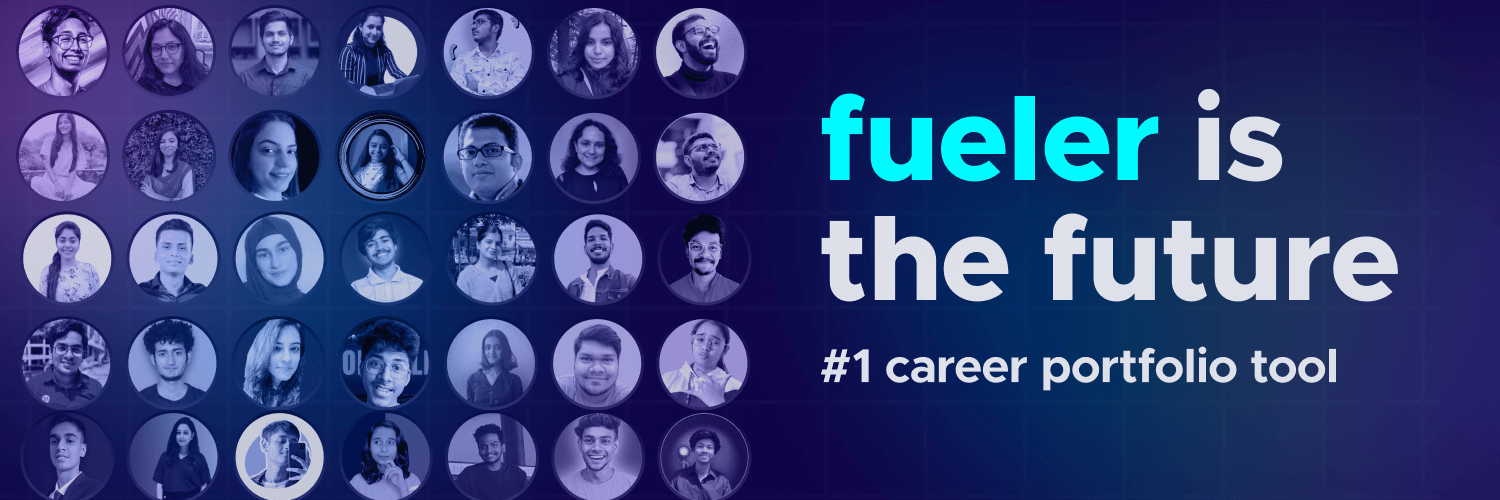Different Ways to Get into the Career You Want: A Comprehensive Guide

Team Fueler
03 Jun, 2024

Many people dream of having a fulfilling career that they are passionate about. However, getting into the career of your choice can be a daunting task. With so many options available, it can be challenging to know where to start. Fortunately, there are several different paths you can take to achieve your career goals.
One way to get into the career you want is to pursue a degree in the field. This can provide you with the necessary knowledge and skills to succeed in your chosen profession. Another option is to gain experience through internships or entry-level positions. This can give you hands-on experience and help you build a network of contacts in the industry. Additionally, networking and building relationships with professionals in your desired field can open doors and lead to job opportunities.
- Educational Pathways
- Work Experience
- Networking
- Skill Development
- Job Search Strategies
- Alternative Approaches
1. Educational Pathways
One of the most common ways to get into the career you want is through education. There are various educational pathways that one can take to achieve their career goals. Here are a few popular options:
A. Traditional College or University
Attending a traditional college or university is a common path for many individuals who want to pursue a specific career. This pathway often involves obtaining a bachelor's degree in a field related to the desired career. For example, someone who wants to become a nurse may pursue a degree in nursing. This pathway can also lead to further education, such as a master's or doctoral degree.
B. Vocational or Trade School
Vocational or trade schools offer programs that are more focused on specific career paths. These programs often provide hands-on training and experience in a particular field. For example, someone who wants to become a welder may attend a vocational or trade school that offers a welding program. These programs typically take less time to complete than traditional college or university programs.
C. Online Education
Online education has become increasingly popular in recent years. Many colleges and universities now offer online courses and degree programs. This pathway can be a convenient option for individuals who have work or family obligations that make attending traditional classes difficult. Online education can also be more affordable than traditional college or university programs.
No matter which educational pathway one chooses, it is important to research and choose a program that aligns with their career goals and provides the necessary skills and experience to succeed in their desired field.
2. Work Experience
Work experience is a valuable asset to have when trying to get into the career you want. It not only shows that you have practical skills and knowledge, but it also demonstrates that you are committed to the field you want to work in. Here are some ways to gain work experience:
A. Internships
Internships are a great way to gain hands-on experience in your desired field. They allow you to work alongside professionals in the industry and learn from their expertise. Internships can be paid or unpaid, and they can last anywhere from a few weeks to several months. Some internships may even lead to a job offer.
B. Volunteer Work
Volunteering is another way to gain work experience. It allows you to give back to your community while also developing skills that can be used in your desired career. Volunteering can be done in a variety of settings, such as hospitals, schools, and non-profit organizations.
C. Part-Time Jobs
Part-time jobs can also provide valuable work experience. They allow you to earn money while also gaining skills that can be used in your desired career. Part-time jobs can be found in a variety of industries, such as retail, food service, and customer service.
Overall, gaining work experience is an important part of getting into the career you want. It shows that you are committed to the field and have practical skills and knowledge that can be used in the workplace.
3. Networking
Networking is an essential part of any career path. It involves building relationships with people in your industry, both online and offline. Networking can help you learn about job opportunities, gain valuable insights, and connect with people who can help you advance in your career.
Here are some tips for effective networking:
- Attend industry events: Attend conferences, trade shows, and other events related to your industry. These events are great opportunities to meet new people, learn about the latest trends and developments, and make valuable connections.
- Join professional organizations: Joining a professional organization in your field can help you connect with like-minded professionals, gain access to industry resources, and stay up-to-date on the latest news and trends.
- Use social media: Social media platforms like LinkedIn and Twitter can be powerful tools for networking. Use these platforms to connect with people in your industry, share your expertise, and stay informed about what's happening in your field.
- Be proactive: Don't be afraid to reach out to people you admire or respect in your industry. Send them a message introducing yourself and asking if they would be willing to chat with you about their career path and experiences.
By following these tips, you can build a strong professional network that can help you achieve your career goals.
4. Skill Development
Developing skills is an essential part of getting into the career you want. It is important to identify the skills required for your desired job and work on developing them. Here are some ways to develop your skills:
A. Online Courses
Online courses are a great way to develop your skills. There are many platforms that offer online courses, such as Coursera, edX, and Udemy. These courses are usually affordable and can be completed at your own pace. You can choose from a variety of courses that cover different topics and skills.
B. Workshops and Seminars
Attending workshops and seminars is another way to develop your skills. These events are usually conducted by experts in the field and provide an opportunity to learn from them. You can also network with other professionals in the industry and gain insights into the latest trends and developments.
C. On-the-Job Training
On-the-job training is a great way to develop your skills while gaining practical experience. Many companies offer training programs for new employees, which can help you develop the skills required for your job. You can also learn from your colleagues and supervisors by observing their work and asking for feedback.
D. Practice and Feedback
Practicing your skills and seeking feedback is essential for skill development. You can practice by taking on new projects or volunteering for assignments that require the skills you want to develop. Seeking feedback from your colleagues and supervisors can help you identify areas for improvement and refine your skills.
In conclusion, developing skills is an ongoing process that requires dedication and effort. By taking advantage of online courses, workshops and seminars, on-the-job training, and practicing your skills, you can develop the skills required for your desired career.
5. Job Search Strategies
When looking for a job, it's important to have a strategy in place to increase your chances of success. Here are some job search strategies to consider:
A. Networking
Networking is a powerful tool for finding job opportunities. Attend industry events, join professional organizations, and connect with people on LinkedIn. Let your network know that you're looking for a job and ask for referrals or introductions.
B. Job Boards
Job boards are a great way to find job openings. There are many general job boards like Indeed, Monster, and Glassdoor, as well as niche job boards for specific industries. Set up job alerts and tailor your resume and cover letter to each job you apply for.
C. Company Websites
Many companies post job openings on their own websites. Check the career section of the websites of companies you're interested in working for. You can also reach out to companies directly to inquire about job openings.
D. Recruitment Agencies
Recruitment agencies like blue collar recruitment agency can help connect you with job opportunities that match your skills and experience. They can also provide valuable advice on your resume and interview skills.
E. Social Media
Social media platforms like Twitter and Facebook can be used to find job openings. Follow companies you're interested in and engage with their content. You can also use hashtags to search for job openings in your field.
By using a combination of these job search strategies, you can increase your chances of finding the career you want.
6. Alternative Approaches
Sometimes, traditional paths to a career may not be feasible for everyone. Fortunately, there are alternative approaches to consider.
A. Apprenticeships
Apprenticeships are a form of on-the-job training where an individual works under the guidance of a skilled professional to learn the necessary skills for a particular career. This approach is particularly useful for those who prefer hands-on learning and want to avoid the cost of traditional education.
B. Freelancing
Freelancing is a popular option for those who want to work in creative fields such as writing, graphic design, or photography. Freelancers work independently and can set their own schedules and rates. While freelancing can be unpredictable, it can also provide a great deal of freedom and flexibility.
C. Networking
Networking is an important part of any career, but it can be especially useful for those who are trying to break into a new field. Attending industry events, joining professional organizations, and connecting with people on social media can all help to expand one's professional network and lead to new opportunities.
D. Online Learning
Online learning has become increasingly popular in recent years, and for good reason. It allows individuals to learn at their own pace and on their own schedule. Many reputable universities and organizations offer online courses and certifications, making it easier than ever to gain the necessary skills for a career.
These alternative approaches may not be the traditional path, but they can be just as effective in helping individuals achieve their career goals.
About Fueler:
Fueler is a career portfolio platform that helps companies find the best talents for their organization based on their proof of work
You can create your portfolio on Fueler, thousands of freelancers around the use Fueler to create their professional-looking portfolios and become financially independent. Discover inspiration for your portfolio
Sign up for free on Fueler or get in touch to learn more


